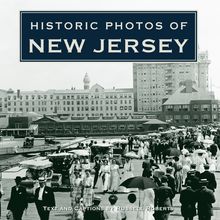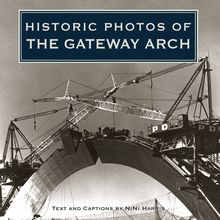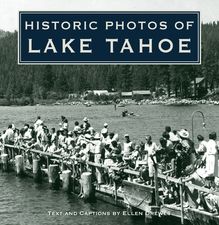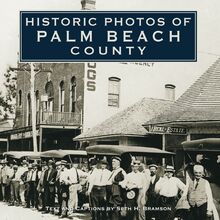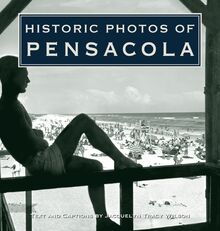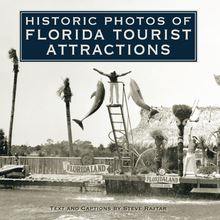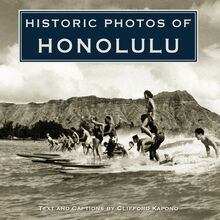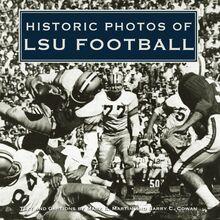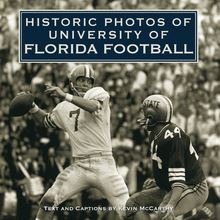-
 Univers
Univers
-
 Ebooks
Ebooks
-
 Livres audio
Livres audio
-
 Presse
Presse
-
 Podcasts
Podcasts
-
 BD
BD
-
 Documents
Documents
-
- Cours
- Révisions
- Ressources pédagogiques
- Sciences de l’éducation
- Manuels scolaires
- Langues
- Travaux de classe
- Annales de BEP
- Etudes supérieures
- Maternelle et primaire
- Fiches de lecture
- Orientation scolaire
- Méthodologie
- Corrigés de devoir
- Annales d’examens et concours
- Annales du bac
- Annales du brevet
- Rapports de stage
La lecture à portée de main
Vous pourrez modifier la taille du texte de cet ouvrage
Découvre YouScribe en t'inscrivant gratuitement
Je m'inscrisDécouvre YouScribe en t'inscrivant gratuitement
Je m'inscrisEn savoir plus
Vous pourrez modifier la taille du texte de cet ouvrage
En savoir plus

Description
Sujets
Informations
| Publié par | Turner Publishing Company |
| Date de parution | 01 mars 2007 |
| Nombre de lectures | 0 |
| EAN13 | 9781618586360 |
| Langue | English |
| Poids de l'ouvrage | 10 Mo |
Informations légales : prix de location à la page 0,1900€. Cette information est donnée uniquement à titre indicatif conformément à la législation en vigueur.
Extrait
HISTORIC PHOTOS OF
GREATER
MIAMI
T EXT AND C APTIONS BY S ETH H. B RAMSON
Miami Beach s oceanfront looking north from 18th Street has yet to be developed in this 1914 photograph.
HISTORIC PHOTOS OF
GREATER
MIAMI
Turner Publishing Company
200 4th Avenue North Suite 950
Nashville, Tennessee 37219
(615) 255-2665
www.turnerpublishing.com
Copyright 2007 Turner Publishing Company
All rights reserved.
This book or any part thereof may not be reproduced or transmitted in any form or by any means, electronic or mechanical, including photocopying, recording, or by any information storage and retrieval system, without permission in writing from the publisher.
Library of Congress Control Number: 2006937032
ISBN-13: 978-1-59652-320-3
ISBN: 1-59652-320-4
Printed in China
09 10 11 12 13 14 15-0 9 8 7 6 5 4
C ONTENTS
A CKNOWLEDGMENTS
P REFACE
B IRTH AND THE R AIL C ONNECTION (1800 S -1910)
W AR AND R EAL E STATE B OOM (1911-1930 S )
T RAINING AN A RMY AND A B RAND N EW B OOM (1940-1949)
R OBUST R AILS TO S TRAPPING S KIES (1950 S )
A C ITY L OOKS O NWARD (1960 S )
N OTES ON THE P HOTOGRAPHS
It is 1899 and the view is north from the Royal Palm grounds, with the Elser Pier at the foot of Twelfth (later Flagler) Street shown at right, and the Florida East Coast dock farther north, also on the right.
A CKNOWLEDGMENTS
This volume, Historic Photos of Greater Miami , is the result of the cooperation and efforts of many individuals and organizations. It is with great thanks that we acknowledge in particular the generous assistance of the State Archives of Florida.
We would also like to thank the following individuals for valuable contributions and assistance in making this work possible:
N. Adam Watson, Photographic Archivist, State Archives of Florida Seth H. Bramson, our writer
P REFACE
Miami has thousands of historic photographs that reside in archives, both locally and nationally. This book began with the observation that, while those photographs are of great interest to many, they are not easily accessible. During a time when Miami is looking ahead and evaluating its future course, many people are asking, How do we treat the past? These decisions affect every aspect of the city-architecture, public spaces, commerce, infrastructure-and these, in turn, affect the way that people live their lives. This book seeks to provide easy access to a valuable, objective look into the history of Miami.
The power of photographs is that they are less subjective than words in their treatment of history. Although the photographer can make decisions regarding subject matter and how to capture and present it, photographs do not provide the breadth of interpretation that text does. For this reason, they offer an original, untainted perspective that allows the viewer to interpret and observe.
This project represents countless hours of review and research. The researchers and writer have reviewed thousands of photographs in numerous archives. We greatly appreciate the generous assistance of the individuals and organizations listed in the acknowledgments of this work, without whom this project could not have been completed.
The goal in publishing this work is to provide broader access to this set of extraordinary photographs that seek to inspire, provide perspective, and evoke insight that might assist people who are responsible for determining Miami s future. In addition, the book seeks to preserve the past with adequate respect and reverence.
With the exception of touching up imperfections caused by the damage of time and cropping where necessary, no other changes have been made. The focus and clarity of many images is limited to the technology and the ability of the photographer at the time they were taken.
The work is divided into eras. Beginning with some of the earliest known photographs of Miami, the first section records photographs through the end of the nineteenth century to the beginning of the twentieth. The second section spans 1911 to the 1930s. Section Three covers the World War II era and postwar years. Section Four spans the 1950s and the final section the 1960s. In each of these sections we have made an effort to capture various aspects of life through our selection of photographs. People, commerce, transportation, infrastructure, religious institutions, and educational institutions have been included to provide a broad perspective.
We encourage readers to reflect as they go walking in Miami, strolling through the city, its parks, and its neighborhoods. It is the publisher s hope that in utilizing this work, longtime residents will learn something new and that new residents will gain a perspective on where Miami has been, so that each can contribute to its future.
Todd Bottorff, Publisher
The beauty of the Miami River at the time of the arrival of the pioneers was almost indescribable. This view gives the reader a view of the still-pristine waterway.
B IRTH AND THE R AIL C ONNECTION
(1800 S -1910)
The story of the Magic City is a story that began in the paleo-Indian era, when tribes such as the Timucuans and the Calusa, who left precious few artifacts, roamed the region around the shores of Biscayne Bay. Its origin as an American metropolis picks up with the arrival of people such as Julia Tuttle-the famed Mother of Miami -and William Brickell, along with others such as John Sewell and Isadore Cohen, all of whom found themselves fascinated with the beauty of the still virgin area-a pristine river and magnificent and open bay, the river so clean it could be sipped, the bay so clean that the fish and shellfish caught there were safe to eat.
On April 15, 1896, the first train-a construction train-arrived in what would become Miami on July 28 of the same year, and one week later, on April 22, the first passenger train stopped. The Royal Palm Hotel would open on December 31.
Julia Tuttle died in 1898, never getting to see the city she created begin its meteoric growth. With the formation of a chamber of commerce and the increase in Florida East Coast Railway passenger and freight services, that growth was just beginning.
Street paving got underway and ferry service was started across Biscayne Bay to Ocean Beach, not much more than a sandbar at the time, but today a little place called Miami Beach.
Stores opened and names such as Frank Budge (hardware), Roddy Burdine (dry goods) and J. N. and J. E. Lummus (real estate) added their imprint to the city of the Brickells, Tuttles, Sewells, and Cohens as the community began to thrive and prosper.
John S. Collins and his son-in-law, Thomas Pancoast, had purchased the Ocean Beach property of Ezra Osborne and Elnathan T. Field and were developing a short-lived avocado plantation. Real estate prices began slowly to increase and the city of Miami began expanding north, south, and west, constricted on the east only by Biscayne Bay.
In infancy, Miami had advanced from crawling to walking and the steps were getting longer almost by the day.
Old Fort Dallas was the original Seminole Indian wars post, first occupied by the army in 1836, and closed and reoccupied several times, finally being sold to Julia Tuttle, who made it her home. The original Seminole Club Hotel is on the right.
One of the great names of Miami history is that of the Stoneman family, gathered for a portrait here around 1893. Holding his baby daughter in the back row is Frank Stoneman, who would become the owner of the Miami Herald newspaper in its early years. This daughter, Marjory Stoneman Douglas, would grow up to become one of the leaders in the fight to save the Everglades.
Even in the earliest days, the call of the Magic City (not yet known by that sobriquet) was irresistible. In a dwelling less than ideal this family strives to become part of the emerging community.
Photographed in 1896, the original Bank of Bay Biscayne is shown here. Richard Brown, president of the bank, is believed to be the person on the right.
The breaking of ground for the fabled Royal Palm Hotel was a momentous occasion. On March 15, 1896, one month before the arrival of the first Florida East Coast Railway train, five pioneer Miamians-from left to right, Everest G. Sewell, T. L. Townley, John Sewell, C. T. McCrimmon, and J. E. Lummus-pose for a photograph commemorating the groundbreaking.
Julia Tuttle was a teetotaler and originally tried to make Miami a dry city, without much success. She was able, however, to organize religious gatherings. This very rare photo shows what is believed to be Miami s first revival or tent meeting, held sometime during 1896. The location is thought to be at 12th Street and Avenue C, today s Flagler Street and Northeast First Avenue.
P. John Coates was one of Miami s pioneer photographers. He may have been associated with the Hand s Photographic Studio, the largest of the early photo and portrait emporiums in the newly birthed city.
Given the shape of the building and the sign on the left side, this is probably the original studio of photographer Coates, but is perhaps his home as well.
The C. Cone blacksmith shop, Miami s first, was on Avenue D, today s Miami Avenue, and stood next to the T. N. Gautier grocery and grain store. Mrs. Gautier s boarding house, one of Miami s earliest, is on the second floor. The trench being dug may be the sewer line for the Royal Palm Hotel.
Although unidentified, this group of dandies likely poses on a Sunday at Julia Tuttle s hotel in Miami. It is probable that they were Flagler employees involved in the construction of the Florida East Coast Railway facilities and the Royal Palm Hotel.
Compared with the Miami of today, it is almost unbelievable that this scene of a group of people shows them at what was then the area of 12th Street and Avenue D, today s Flagler Street and Miami Avenue.
A group of Flagler workmen in the Miami wilderness pose for the camera sometime during 1896.
Life in
-
 Univers
Univers
-
 Ebooks
Ebooks
-
 Livres audio
Livres audio
-
 Presse
Presse
-
 Podcasts
Podcasts
-
 BD
BD
-
 Documents
Documents
-
Jeunesse
-
Littérature
-
Ressources professionnelles
-
Santé et bien-être
-
Savoirs
-
Education
-
Loisirs et hobbies
-
Art, musique et cinéma
-
Actualité et débat de société
-
Jeunesse
-
Littérature
-
Ressources professionnelles
-
Santé et bien-être
-
Savoirs
-
Education
-
Loisirs et hobbies
-
Art, musique et cinéma
-
Actualité et débat de société
-
Actualités
-
Lifestyle
-
Presse jeunesse
-
Presse professionnelle
-
Pratique
-
Presse sportive
-
Presse internationale
-
Culture & Médias
-
Action et Aventures
-
Science-fiction et Fantasy
-
Société
-
Jeunesse
-
Littérature
-
Ressources professionnelles
-
Santé et bien-être
-
Savoirs
-
Education
-
Loisirs et hobbies
-
Art, musique et cinéma
-
Actualité et débat de société
- Cours
- Révisions
- Ressources pédagogiques
- Sciences de l’éducation
- Manuels scolaires
- Langues
- Travaux de classe
- Annales de BEP
- Etudes supérieures
- Maternelle et primaire
- Fiches de lecture
- Orientation scolaire
- Méthodologie
- Corrigés de devoir
- Annales d’examens et concours
- Annales du bac
- Annales du brevet
- Rapports de stage
